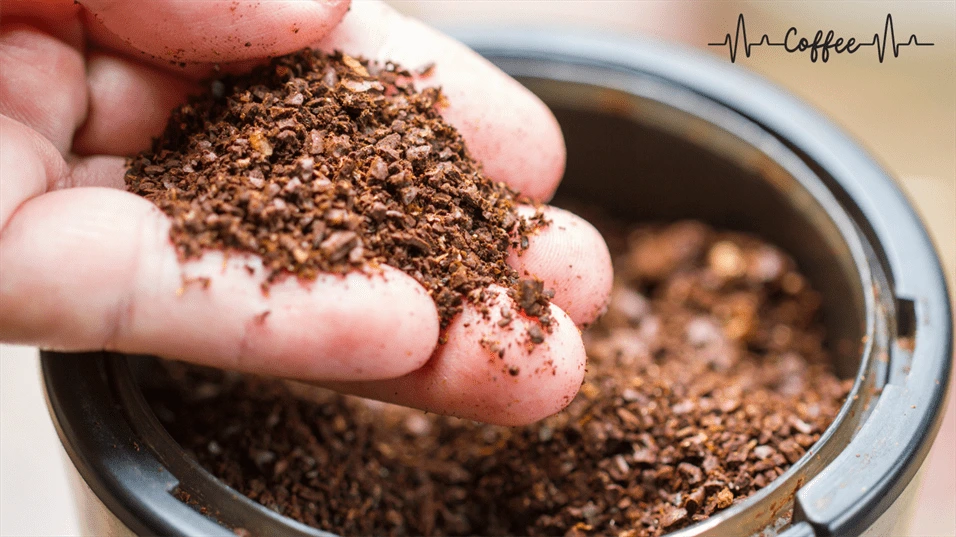Decaffeinated Coffee – The Best Way to Enjoy Coffee Without the Jolt
Table of Contents
A Sip of Comfort Without the Jolt
For many coffee lovers, the allure of a rich and aromatic cup of coffee is undeniable. However, not everyone is keen on the stimulating effects of caffeine, especially later in the day or for those who are sensitive to it. This is where decaffeinated coffee comes in—allowing you to enjoy the full-bodied flavor and warmth of coffee without the unwanted jolt. Whether you’re winding down in the evening or simply wish to indulge in a comforting brew without the buzz, decaf coffee has grown in popularity and continues to be a favorite choice among coffee enthusiasts.
This article will explore the various aspects of decaffeinated coffee, including how it’s made, the methods of decaffeination, the benefits it offers, and why it’s a great alternative for coffee lovers who seek to enjoy their favorite beverage without the caffeine.
What is Decaffeinated Coffee?
Decaffeinated coffee, often simply called decaf, is coffee that has had most of its caffeine removed. While it’s impossible to eliminate all the caffeine, decaf coffee typically retains about 1-3% of the caffeine present in regular coffee. This means that you can savor the taste and experience of coffee while avoiding the risk of restlessness or sleepless nights that can accompany caffeine consumption.
Despite the reduced caffeine content, high-quality decaf coffee retains many of the flavors of its caffeinated counterpart. For individuals who prefer a caffeine-free option but don’t want to compromise on taste, decaffeinated coffee provides an excellent solution.
How is Decaffeinated Coffee Made?
The process of making decaffeinated coffee involves extracting the caffeine from the coffee beans. Various methods are employed to achieve this, each with its own advantages and characteristics. Below are the most common decaffeination methods:
1. Water Process (Swiss Water Process)
One of the most natural decaffeination techniques is the Swiss Water Process. In this method, coffee beans are soaked in hot water, which dissolves the caffeine. The water is then passed through a specialized carbon filter that traps the caffeine molecules while allowing the coffee’s flavor compounds to remain intact. This method uses no chemicals, making it an environmentally friendly and caffeine-free process.
2. Carbon Dioxide (CO2) Process
The CO2 process involves using carbon dioxide in a supercritical state (a phase where CO2 behaves as both a liquid and a gas) to extract caffeine from the beans. This highly selective process removes the caffeine while preserving the bean’s flavors. Although the CO2 method is more complex and expensive, it results in a cleaner, higher-quality cup of decaf coffee.
3. Solvent-Based Processes
In solvent-based decaffeination, coffee beans are steamed to open their pores and then soaked in a solvent like methylene chloride or ethyl acetate. These solvents bind with caffeine molecules, allowing them to be removed. Afterward, the beans are steamed again to remove any residual solvent. While this method is effective, it can leave traces of chemicals if not carefully processed.
4. Triglyceride Process
The Triglyceride process involves soaking coffee beans in hot water and then immersing them in coffee oils extracted from other beans. These oils bind to the caffeine molecules, which are then removed. This method, though relatively newer, has shown promising results in retaining the flavor of the coffee while reducing its caffeine content.
Benefits of Decaffeinated Coffee
While decaf coffee doesn’t provide the same stimulating effects as regular coffee, it offers a range of benefits, particularly for those who prefer to limit their caffeine intake or avoid it altogether. Here are some of the key benefits of decaffeinated coffee:
1. Reduced Caffeine Sensitivity
For individuals who are sensitive to caffeine, decaf is an excellent alternative. Some people experience symptoms like jitteriness, anxiety, or difficulty sleeping when consuming caffeine. Drinking decaffeinated coffee helps mitigate these issues, allowing you to enjoy a warm cup of coffee without the stimulating side effects.
2. Better for Evening Enjoyment
Drinking regular coffee late in the day can disrupt your sleep patterns due to its caffeine content. Since decaffeinated coffee contains only trace amounts of caffeine, it allows you to enjoy your coffee habit without worrying about staying awake all night. It’s the ideal choice for evening relaxation, offering the comforting taste of coffee without interfering with your sleep.
3. Low-Acidity Option
Decaf coffee is often gentler on the stomach, making it a great option for those with acid reflux or sensitive digestive systems. Regular coffee can be highly acidic, which may cause discomfort for some people. Decaf coffee, especially those processed through methods like the Swiss Water Process, tends to be lower in acidity, providing a milder, more stomach-friendly option.
4. Health Benefits
Research has shown that decaffeinated coffee can offer health benefits, including the potential to lower the risk of type 2 diabetes, enhance liver health, and provide a rich source of antioxidants. Since decaf coffee retains many of the beneficial compounds found in regular coffee, you can still enjoy these advantages with minimal caffeine intake.
Flavor Profile of Decaffeinated Coffee
One of the most common misconceptions about decaf coffee is that it lacks the rich and robust flavor of regular coffee. While it’s true that some decaf coffees can taste flat, high-quality beans and careful decaffeination processes can preserve much of the coffee’s natural flavors. The Swiss Water Process and CO2 decaffeination methods, in particular, excel at maintaining the complexity and depth of flavor, offering a satisfying experience for decaf lovers.
When choosing decaf coffee, it’s important to select a variety with a flavor profile that suits your preferences. From light and fruity roasts to bold and dark brews, decaf coffee offers a wide range of flavors for every taste.
How to Brew Decaffeinated Coffee
Brewing decaffeinated coffee is no different from brewing regular coffee. Whether you use a drip coffee maker, French press, espresso machine, or pour-over method, the process remains the same. However, since decaf coffee can sometimes taste milder, you might want to experiment with the coffee-to-water ratio to suit your flavor preferences.
Here are some tips for brewing the best decaf coffee:
- Freshness Is Key: Just like regular coffee, freshly ground decaf beans produce the best flavor. If possible, grind your beans just before brewing for the freshest cup.
- Adjust Ratios: Decaf coffee may taste slightly milder, so feel free to adjust the coffee-to-water ratio to achieve the desired strength.
- Brewing Temperature: Brew your decaf coffee at a temperature between 195°F and 205°F (90°C to 96°C) for optimal extraction.
Decaffeinated Coffee for Every Occasion
Decaf coffee is a versatile beverage that can be enjoyed in many ways. Whether you prefer it hot or iced, black or with milk, decaf coffee fits any occasion. There are also flavored decaf coffee options available, such as vanilla, hazelnut, and caramel, for those who enjoy a bit of sweetness and variety in their brew.
Conclusion
Decaffeinated coffee is the perfect solution for those who want to savor the flavor and comfort of coffee without the stimulating effects of caffeine. With the right decaffeination methods, high-quality beans, and the perfect brewing techniques, decaf coffee can provide a rich, satisfying experience that rivals regular coffee. Whether you are sensitive to caffeine, prefer coffee in the evening, or simply enjoy the taste of coffee without the buzz, decaffeinated coffee offers a wonderful option that should not be overlooked.

